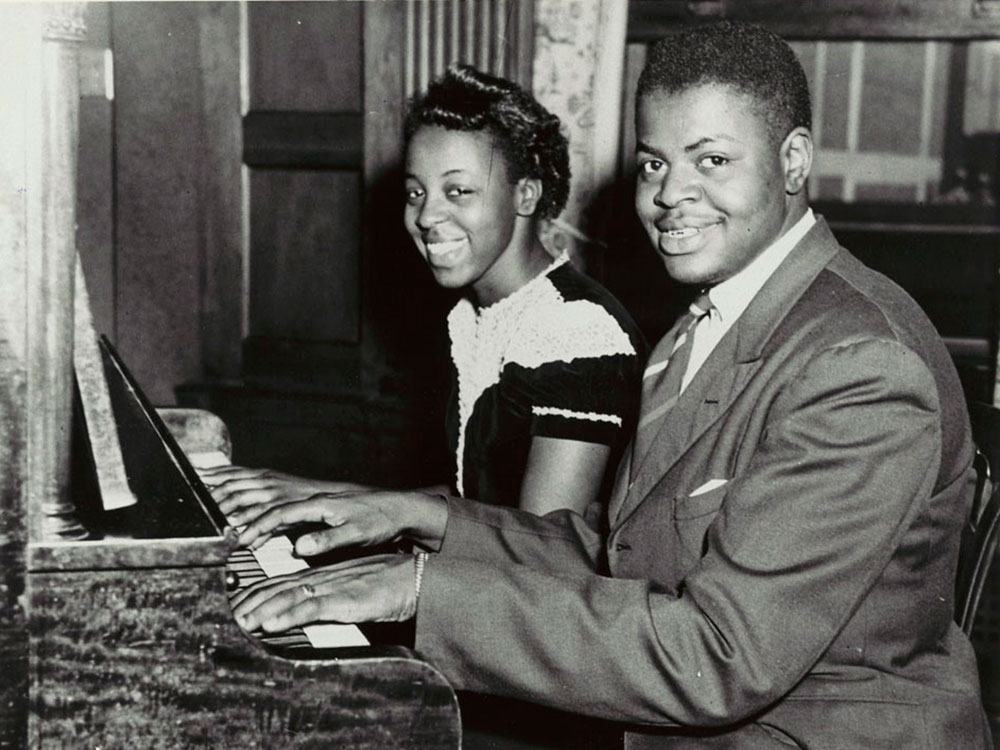The city of Montreal appears to have an oddly difficult time honouring Canadian figures who weren’t separatist heroes.
Ask friends, relatives or admirers of Mordecai Richler, easily one of Canada’s great literary figures. Or anyone who honours the memory of Vimy Ridge, among the most consequential military battles of Canadian history. Or ask Celine Peterson, daughter of Oscar Peterson, the brilliant pianist and giant of Canadian music.
When Peterson’s sister Daisy died a year ago at age 97, then-mayor Denis Coderre pledged to have a street named after her. Daisy Peterson Sweeney was instrumental in her brother’s career: he credited her with instilling the drive that drove him to the heights of international achievement. It was central to the training she taught generations of young people during her own career as a music teacher, the belief that they were capable of much more than they might have thought. Other former pupils included Joe Sealy, Reg Wilson, Ken Skinner and drummer Norman Marshall Villeneuve.
It’s very frustrating to see she’s being disrespected in this way
A year after Coderre’s promise, Peterson’s family was summarily notified that the pledge had been rescinded, and instead of a street, Daisy’s name would be appended to an existing park. Not much of a park, unfortunately: a narrow strip near a busy intersection, with a footpath, a few benches, some slides and a compost station.
“It looks like a dog run,” complained Celine Peterson. “Daisy Peterson Sweeney is such an important part of Canadian music history and Montreal … It’s very frustrating to see she’s being disrespected in this way.”

The Petersons aren’t the first to get the impression the city is half-hearted about certain honourees. The saga of the Richler gazebo is a sorry tale of municipal ineptitude that has stretched over years of official neglect and indifference. Never a favourite of the Quebecois despite his stature as one of Canada’s great writers, the best the city could come up with after his death in 2001 was a gazebo in a Mount Royal park, and even then it took a decade to set in motion. The structure was promptly allowed to sink into disrepair, followed by a renovation that took five more years and $725,000 to complete. A year later it needed another repair job to scrape away graffiti and spruce up the paint.
As with Peterson’s family, Richler’s widow, Florence, has complained of being left in the dark of city plans, and once jokingly offered to buy the paint if it would hurry up the process.

Canadians filled with respect for the sacrifices made by Canadian troops at Vimy Ridge were livid when they learned a park named after the momentous First World War battle — in which Canadian troops overcame fierce German resistance to capture a crucial enemy position at a cost of 10,000 casualties — was to be renamed after Jacques Parizeau, who dedicated much of his life to breaking up Canada in the name of an independent Quebec.
“Changing a park in Montreal from ‘Vimy’ to ‘Jacques Parizeau’ — and this during the 100th anniversary of WW1 — is an insult pure and simple,” charged former Liberal leader Bob Rae at the time.
City council voted heavily in favour of the plan nonetheless, noting that Parizeau lived near the park and liked to walk there. Coderre, seeking to soothe the anger, promised another site to honour the battle, and later renamed a section of an existing park Vimy Place.

It’s pretty thin gruel given the eagerness to hail such other figures as Parizeau and his predecessor as separatist leader, René Lévesque. Soon after his death, one of Montreal’s main thoroughfares was renamed Boulevard René-Lévesque in honour of the former premier and separatist. Outside Montreal, Lévesque has been celebrated in his hometown of New Carlisle with a life-size statue and a new museum, to which the federal government that Lévesque so stridently battled contributed $750,000.
Montreal’s current mayor, Valerie Plante, insisted the choice of location to honour Daisy Peterson Sweeney “was not a political thing,” but a matter of process. “You don’t unname a street to rename a street,” she said, despite the city having done just that for Lévesque. She also argued the selection was appropriate because “the park that was found was a park with no name,” despite a sign identifying it as Parc Guy/Paxton after the streets that intersect at one corner.
We’ll be reinvesting in that park very soon
“It’s in a strategic place, it’s downtown, and we’ll be reinvesting in that park very soon,” Plante promised.
Hopefully the reinvestment occurs quicker than the glacial pace of the Richler project. In any case, both the Richlers and Petersons can take comfort in a more fitting tribute arranged by the non-profit organization MU, which has sponsored a series of murals across Montreal in its mission to “transform” the city “into an open air museum.” Among almost 80 murals in 15 boroughs are depictions of Oscar Peterson and Mordecai Richler, adorning buildings in neighbourhoods with which they were associated.
The mural of Peterson is directly across the street from Oscar Peterson Park. It was dedicated to him nine years ago, and so far has managed to avoid being rechristened after Lucien Bouchard, or another champion of independence.
























